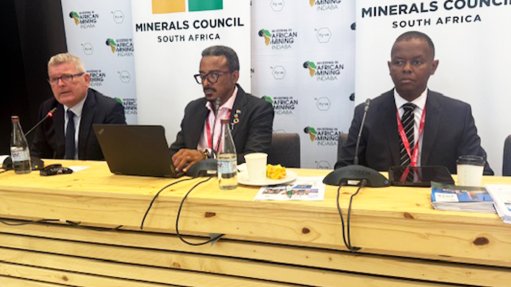Britain’s final rout?
As news of Britain’s Queen Elizabeth II’s passing broke on the evening of September 8, Twitter (and presumably other social media platforms as well) went into overdrive, with many of those who weighed in lamenting the demise of the 96-year-old monarch. Others, however, were utterly uncharitable, with the reasons for that including the fact that she represented a system that at some point subjugated about one-third of the world’s population.
Be that as it may, one cannot gainsay the fact that she had a soft spot for Africa, electing to turn 21 while on a visit to the southern-most tip of the continent – that’s Mzansi, those of you whose geographical bearings are not as keen as they should be. When her father, King George VI, died in February 1952, she was in Kenya, on a Commonwealth tour. She immediately returned home, to be welcomed back by then Prime Minister Winston Churchill as the new British monarch, aged only 25.
She would strike up close relationships with what some commentators have described as “noble leaders” on the African continent – Nelson Mandela belonged to that elite league.
Elizabeth tried her damndest to be seen as having an arms’-length relationship with politics but, by many accounts, she did attempt to exert behind-the-scenes political influence. As a professor from one of the public universities in Gauteng told a radio show host, she was in favour of pressuring the apartheid government to yield to demands for majority rule and quietly sold her views to leaders in the Commonwealth with whom she enjoyed what one could call close relationships. This was at odds with the views of Margaret Thatcher, British Prime Minister from 1979 to 1990, and the likes of former US leader Ronald Reagan, who seemingly preferred a persuasive approach when dealing with South Africa.
It was during the departed monarch’s 70-year reign that the globe-spanning British empire crumbled. When she acceded to the throne, Britain had 70 overseas territories; now, only 14 remain, and these are mostly scattered, wind-swept islands, the biggest being the Falklands Islands, an archipelago in the Atlantic Ocean inhabited by about 3 000 people.
The overseas territories that Britain counted among its “possessions” when Elizabeth transitioned from Princess to Queen included Ghana, Nigeria and the Gambia in West Africa; Kenya, Tanzania and Uganda in East Africa; Malawi (then Nyasaland) and the two Rhodesias (present-day Zambia and Zimbabwe) in Central Africa; South Africa and what are now the independent States of Botswana, eSwatini and Lesotho in Southern Africa; as well as the Indian Ocean island nation of Mauritius.
These territories gained independence in the 1960s – bar Zimbabwe and South Africa, which followed suit in 1980 and 1994 respectively.
Shorn of its status as a colonial master, Britain has sought to maintain its relationships with its former colonies through trade, the granting of aid and diplomacy, the last of which it has achieved mostly through the Commonwealth. This body, with a current 56-strong membership, now includes countries that are not former British colonies. In our Southern Africa neck of the woods, there is Mozambique, a former Portuguese colony, while Rwanda, which was ruled by the Germans and later by the Belgians before gaining independence in 1962, is now also a member.
The Commonwealth has, however, come under criticism for being ineffectual and for its poor record of bringing about major policy changes. Some have suggested that the organisation has survived to this day because of the immense respect Elizabeth commanded within the Commonwealth, of which she was the head. Commentators have predicted it may crumble following Elizabeth’s demise, signifying the British empire’s final rout.
Article Enquiry
Email Article
Save Article
Feedback
To advertise email advertising@creamermedia.co.za or click here
Comments
Press Office
Announcements
What's On
Subscribe to improve your user experience...
Option 1 (equivalent of R125 a month):
Receive a weekly copy of Creamer Media's Engineering News & Mining Weekly magazine
(print copy for those in South Africa and e-magazine for those outside of South Africa)
Receive daily email newsletters
Access to full search results
Access archive of magazine back copies
Access to Projects in Progress
Access to ONE Research Report of your choice in PDF format
Option 2 (equivalent of R375 a month):
All benefits from Option 1
PLUS
Access to Creamer Media's Research Channel Africa for ALL Research Reports, in PDF format, on various industrial and mining sectors
including Electricity; Water; Energy Transition; Hydrogen; Roads, Rail and Ports; Coal; Gold; Platinum; Battery Metals; etc.
Already a subscriber?
Forgotten your password?
Receive weekly copy of Creamer Media's Engineering News & Mining Weekly magazine (print copy for those in South Africa and e-magazine for those outside of South Africa)
➕
Recieve daily email newsletters
➕
Access to full search results
➕
Access archive of magazine back copies
➕
Access to Projects in Progress
➕
Access to ONE Research Report of your choice in PDF format
RESEARCH CHANNEL AFRICA
R4500 (equivalent of R375 a month)
SUBSCRIBEAll benefits from Option 1
➕
Access to Creamer Media's Research Channel Africa for ALL Research Reports on various industrial and mining sectors, in PDF format, including on:
Electricity
➕
Water
➕
Energy Transition
➕
Hydrogen
➕
Roads, Rail and Ports
➕
Coal
➕
Gold
➕
Platinum
➕
Battery Metals
➕
etc.
Receive all benefits from Option 1 or Option 2 delivered to numerous people at your company
➕
Multiple User names and Passwords for simultaneous log-ins
➕
Intranet integration access to all in your organisation


















